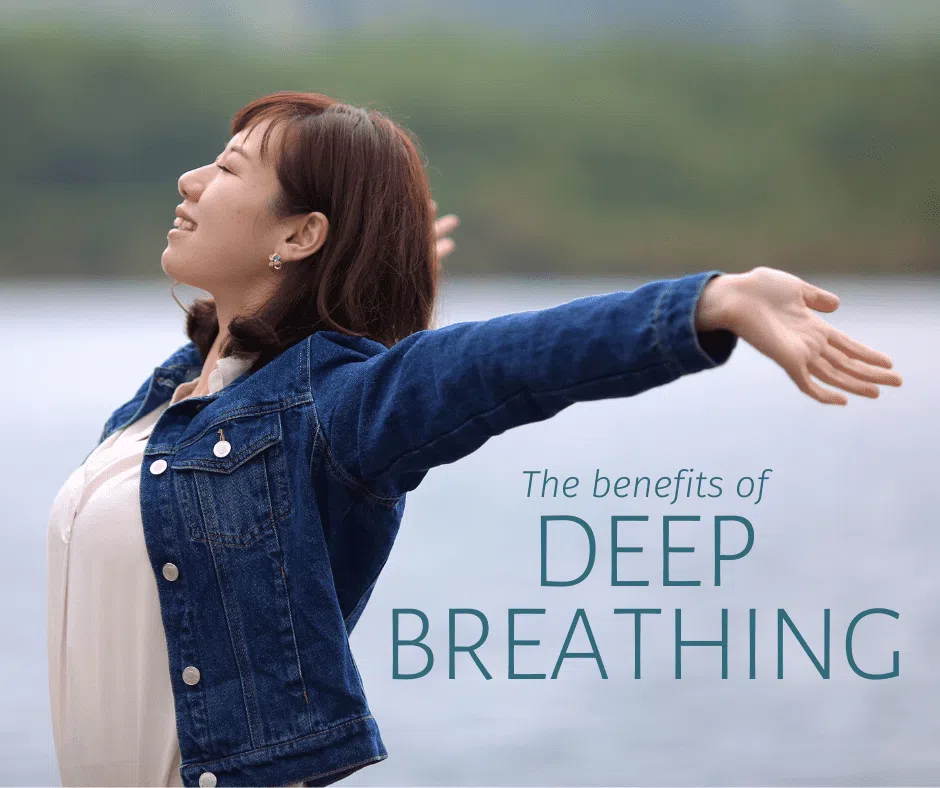
A 2019 study looking at the effects of a Mediterranean diet high in fresh fruit, vegetables, healthy fats, polyphenols (i.e. dark chocolate and berries) and fermented foods (i.e. kimchi or sauerkraut) helped participants to be more stress resilient. Researchers noted the role of the microbiota in producing serotonin (the ‘feel good hormone).
Another 2019 study showed that both probiotics and prebiotics increase our ability to handle stress by supporting gut microbes, and can actually reverse some of the negative effects of stress.
Many studies have shown that stress changes our microbiome, which further reduces our ability to handle stress. A 2017 study concluded that even short-term stress exposure (especially in early life) reduces microbiome diversity and increases anxiety.
Finding comfort in carbs? A 2020 study showed that high consumption of processed carbs can increase anxiety and irritability by taking you on a blood sugar rollercoaster. Your body considers low blood sugar an emergency, which puts you back into fight or flight mode.
The strong links between the gut-brain axis and inflammation are well established. One 2017 study showed that microbiome imbalance can promote chronic inflammation, which then makes us more responsive to stress and increases anxiety. The study notes the important role of Leaky Gut Syndrome, in which stress caused by microbial imbalance causes holes in the mucus lining of the GI tract, allowing bacteria to escape into the body. Our body’s immune response to these “invaders” is linked to systemic inflammation.
The vagus nerve is the main line of communication between your gut and your brain. Certain breathing exercises can improve vagal nerve tone to get you out of flight of flight and into ‘rest and digest’ mode.
A 2018 study reported decreased stress and anxiety, and increased sense of well-being after doing breathing exercises. Effective techniques include slow breathing, longer exhales than inhales and breathing from the diaphragm. Learn how in this short video!
Learn this technique in this short video!
MindshiftTM uses evidence-based Cognitive Behavioural Therapy techniques to help you manage feelings of stress, anxiety, worry and panic. When a stressor hits, try features like Coping Cards and the Chill Zone to ground yourself and cope in the moment. Features like the Thought Journal, Goal Setting and Expanding Your Comfort Zone will help shift your mindset to make positive change that lasts.
Muse goes one step further by pairing a brain-sensing headband with an app to give you real-time feedback on your brain activity during meditation and sleep. Mind wandering during meditation? Stormy weather sounds will cue you to refocus. Peaceful weather sounds confirm you’re in the calm zone.
This amino acid found in green tea is well known for its ability to reduce stress and anxiety. By interacting with both dopamine and GABA receptors in the brain, it brings a sense of calm and well-being. If green tea isn’t for you, supplementing with L-Theanine means you get all the stress-busting benefits with none of the jittery caffeine drawbacks. A 2019 study of stressed, healthy adults showed that just one month of supplementation with :-Theanine significantly reduced anxiety and stress, and improved cognitive function.
This herb has been used for 3,000 years in Indian Ayurvedic Medicine as a whole-body tonic. Classed as an adaptogen, Ashwagandha supports your adrenal glands and HPA axis to help you stay calm and resilient in the face of stress. A 2019 study of healthy, anxious adults showed that ashwagandha supplementation significantly reduced anxiety and improved mood.
References
Adan RAH, van der Beek EM, Buitelaar JK, et al. Nutritional psychiatry: Towards improving mental health by what you eat. Eur Neuropsychopharmacol. 2019;29(12):1321-1332. doi: 10.1016/j.euroneuro.2019.10.011
Alternate Nostril Breathing. Lotus Flower Yoga. https://www.youtube.com/watch?v=XMdTmYMEG-c Accessed on September 18, 2020.
Anxiety Canada. MindshiftTM CBT App. https://www.anxietycanada.com/resources/mindshift-cbt/?_ga=2.127928524.1122230185.1600531245-1709723190.1600531245. Accessed on September 18, 2020.
Bharwani A, Mian MF, Foster JA, Surette MG, Bienenstock J, Forsythe P. Structural & functional consequences of chronic psychosocial stress on the microbiome & host. Psychoneuroendocrinology. 2016; 63:217-227. doi: 10.1016/j.psyneuen.2015.10.001
Burokas A, Arboleya S, Moloney RD, et al. Targeting the Microbiota-Gut-Brain Axis: Prebiotics Have Anxiolytic and Antidepressant-like Effects and Reverse the Impact of Chronic Stress in Mice. Biol Psychiatry. 2017;82(7):472-487. doi: 10.1016/j.biopsych.2016.12.031
Firth J, Gangwisch JE, Borisini A, Wootton RE, Mayer EA. Food and mood: how do diet and nutrition affect mental wellbeing?. BMJ. 2020;369:m2382. Published 2020 Jun 29. doi:10.1136/bmj.m2382
Foster JA, Rinaman L, Cryan JF. Stress & the gut-brain axis: Regulation by the microbiome. Neurobiol Stress. 2017; 7:124-136. Published 2017 Mar 19. doi: 10.1016/j.ynstr.2017.03.001
Headspace. https://www.headspace.com/science/meditation-research. Accessed September 18, 2020.
Kamath A, Urval RP, Shenoy AK. Effect of Alternate Nostril Breathing Exercise on Experimentally Induced Anxiety in Healthy Volunteers Using the Simulated Public Speaking Model: A Randomized Controlled Pilot Study. Biomed Res Int. 2017; 2017:2450670. doi:10.1155/2017/2450670
Muse. https://www.mendeley.com/profiles/muse-research-team/publications/#. Accessed September 18, 2020.
Telles S, Gupta RK, Yadav A, Pathak S, Balkrishna A. Hemisphere specific EEG related to alternate nostril yoga breathing. BMC Res Notes. 2017;10(1):306. Published 2017 Jul 24. doi:10.1186/s13104-017-2625-6
Thomaz F S Bastiaanssen, Caitlin S M Cowan, Marcus J Claesson, Timothy G Dinan, John F Cryan, Making Sense of … the Microbiome in Psychiatry, International Journal of Neuropsychopharmacology, Volume 22, Issue 1, January 2019, Pages 37–52, https://doi.org/10.1093/ijnp/pyy067
Vagus Nerve: Breathing for Relaxation. Tune Up Fitness. https://www.youtube.com/watch?v=dkJDrfL90rU Accessed on September 18, 2020.
White DJ, de Klerk S, Woods W, Gondalia S, Noonan C, Scholey AB. Anti-Stress, Behavioural and Magnetoencephalography Effects of an L-Theanine-Based Nutrient Drink: A Randomised, Double-Blind, Placebo-Controlled, Crossover Trial. Nutrients. 2016;8(1):53. doi:10.3390/nu8010053
Yoto A, Motoki M, Murao S, Yokogoshi H. Effects of L-theanine or caffeine intake on changes in blood pressure under physical and psychological stresses. J Physiol Anthropol. 2012;31(1):28. doi:10.1186/1880-6805-31-28
Alternate Nostril Breathing technique video